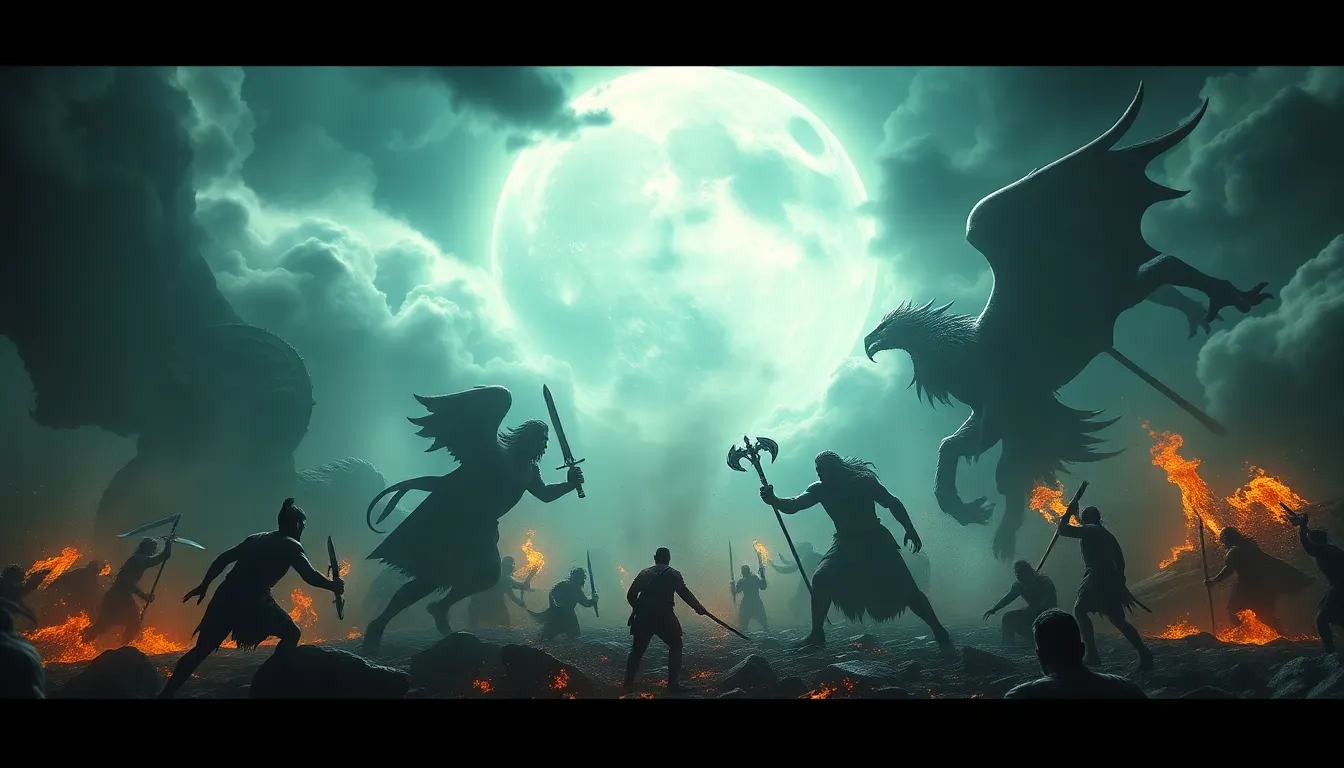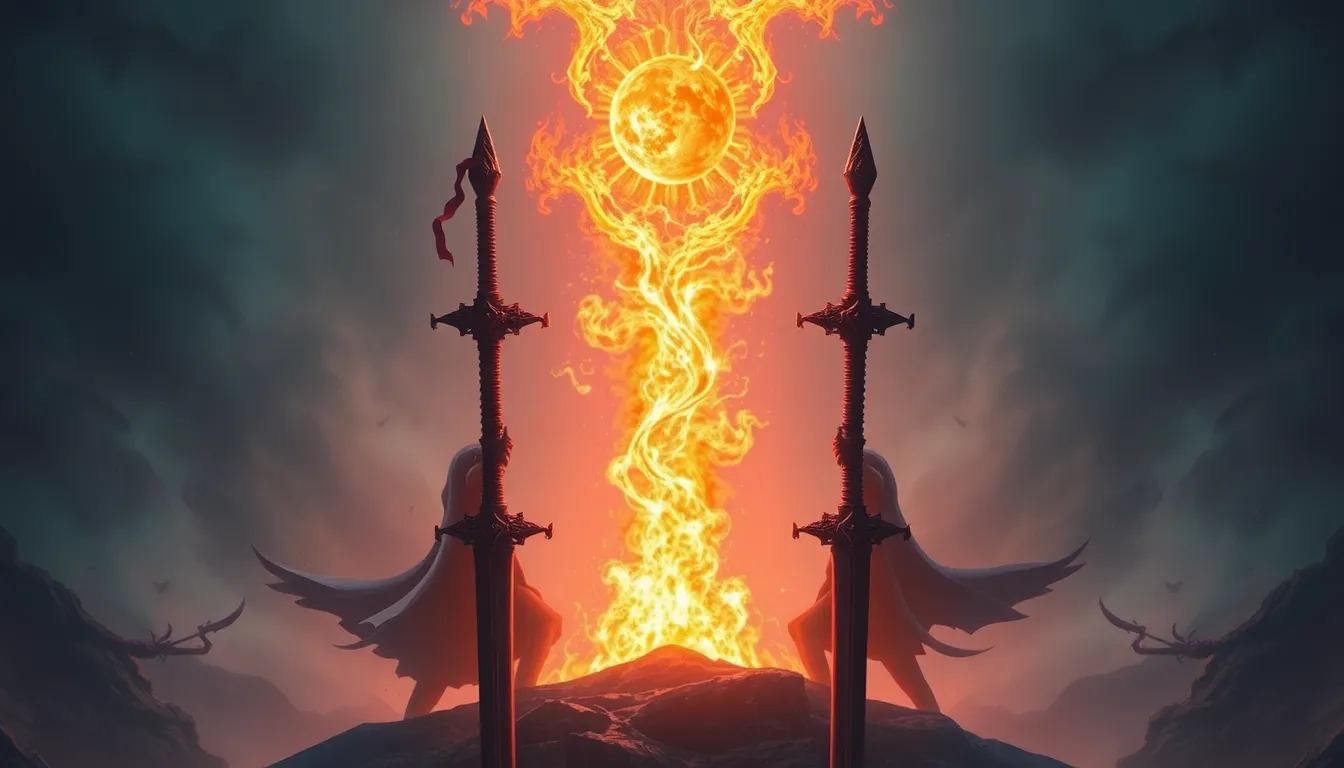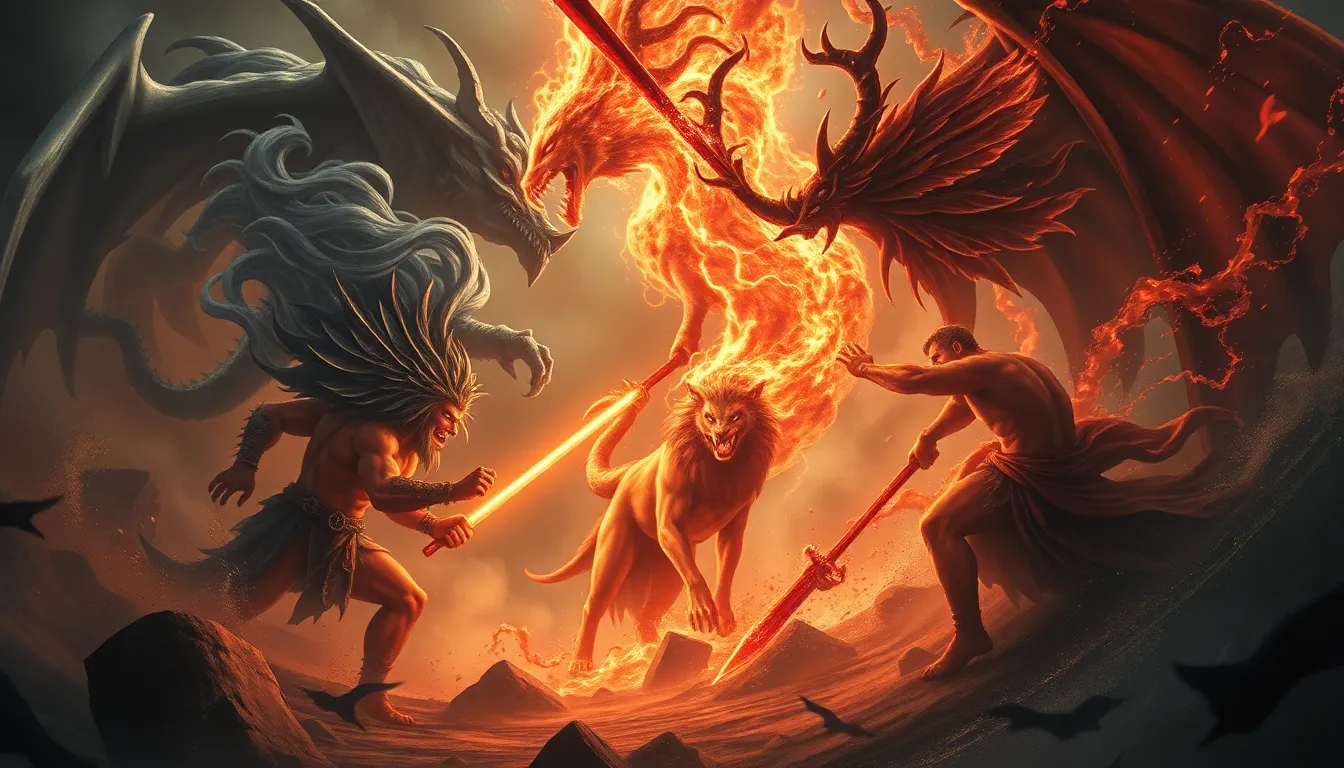The Concept of Time in Persian Mythology
1. Introduction:
Persian mythology, with its rich and vast history, offers a unique perspective on the concept of time. Time, an integral part of human understanding, has always been reflected in various mythologies. This exploration of the concept of time in Persian mythology delves into the ancient beliefs and stories that illuminate the perception of time in this rich cultural tapestry.
2. Time in Zoroastrianism:
Zoroastrianism, the main religion in ancient Persia, profoundly shaped the understanding of time. The central figure in this context is Zurvan, the deity of infinite time. Zurvan is believed to be the source of all creation, encompassing both good and evil, light and darkness. This duality reflects the Zoroastrian belief in the constant struggle between these opposing forces, shaping the flow of time.
Furthermore, Zoroastrianism emphasizes the significance of free will, granting individuals the power to influence the course of time through their choices and actions. This concept adds another layer to the understanding of time, highlighting its dynamic and ever-changing nature.
3. The Myth of Time and Creation:
The Persian creation myth narrates the emergence of the universe through the agency of Zurvan. In this tale, Zurvan, longing for a son, performs a thousand-year sacrifice. However, doubt creeps into his mind, questioning whether his efforts will bear fruit. This doubt manifests as Ahriman, the embodiment of evil, who emerges alongside Ahura Mazda, the embodiment of good.
This myth underscores the Zoroastrian concept of time as cyclical, with periods of creation and destruction alternating. The emergence of Ahura Mazda and Ahriman from Zurvan signifies the beginning of a new cycle, marked by the constant struggle between good and evil.
4. Time and the Cycles of Existence:
The cyclical nature of time is a prominent feature of Persian mythology, influenced by astronomical observations of celestial bodies and their regular movements. These cycles are believed to govern the ebb and flow of existence, shaping events and influencing the destinies of individuals and societies.
One of the most significant cycles is the "Day of Judgment," marking the culmination of an era and the commencement of a new one. This event signifies the final reckoning, where individuals are judged based on their deeds and actions during their earthly lives. The righteous are rewarded with eternal bliss, while the wicked face consequences for their wrongdoings.
Rituals and festivals play a crucial role in marking the passage of time and honoring the cyclical nature of existence. These celebrations often coincide with astronomical events, such as solstices and equinoxes, and serve as reminders of the interconnectedness between celestial cycles and human life.
5. Time and Human Destiny:
In Persian mythology, time is not merely a linear progression of events; it is also intertwined with human destiny. The choices and actions of individuals directly impact the course of time, shaping their own fate and influencing the world around them. This concept emphasizes the responsibility individuals have towards shaping their own destinies and actively contributing to the unfolding of events.
The belief in free will grants humans the agency to influence the flow of time, making them active participants in the grand narrative of existence. This empowers individuals to take ownership of their actions and strive towards creating a better future for themselves and their communities.
6. The Importance of Time:
In Persian mythology, time holds immense significance, shaping creation, governing existence, and influencing human destiny. It is a multifaceted concept encompassing both cyclical patterns and the impact of individual choices, highlighting the intricate interplay between cosmic forces and human agency.
The concept of time in Persian mythology provides insights into the ancient understanding of the universe, human existence, and the interconnectedness between the celestial and terrestrial realms. It offers a unique perspective on the nature of reality, emphasizing the cyclical nature of existence, the significance of choice, and the enduring influence of time on all aspects of life.
7. Time and the Universe:
In Persian mythology, time is not merely a human construct or a physical dimension; it is an integral part of the universe itself. It is believed to permeate all aspects of existence, shaping the birth, growth, and eventual demise of celestial bodies, as well as the rise and fall of civilizations.
The interconnectedness between time and the universe is evident in various myths and legends, where celestial events and astronomical phenomena play a pivotal role in shaping human destiny. These stories underscore the belief that the universe is not static but in a constant state of flux, governed by the inexorable passage of time.
8. Time and the Divine:
Time, in Persian mythology, is not only a physical concept but also intertwined with the divine realm. Gods and goddesses are often associated with specific aspects of time, representing the cyclical nature of existence, the balance between good and evil, and the ultimate fate of the universe.
For instance, Zurvan, the deity of infinite time, embodies the cyclical nature of creation and destruction, while Ahura Mazda, the god of light and goodness, represents the positive aspects of time, and Ahriman, the embodiment of darkness and evil, signifies the destructive forces within the flow of time.
9. Time and Morality:
The passage of time in Persian mythology is also intricately linked to concepts of morality and righteousness. It is believed that time serves as a witness to human actions and ultimately delivers justice to those who deserve it. The righteous are rewarded with eternal bliss in the afterlife, while the wicked face consequences for their wrongdoings.
This concept underscores the importance of living a moral life and emphasizes the consequences of one's actions not only in the present but also in the grand scheme of time. It serves as a reminder that time is not merely a passive observer but an active agent in shaping the ultimate fate of individuals and societies.
10. Time and the Afterlife:
The concept of time in Persian mythology extends beyond earthly existence and into the realm of the afterlife. It is believed that time continues to flow in the afterlife, shaping the experiences of those who have passed on. The righteous enjoy eternal bliss in a paradisiacal realm, while the wicked face various punishments for their misdeeds.
These beliefs about the afterlife further emphasize the importance of living a moral life and making choices that align with the principles of righteousness. The concept of time serves as a reminder that the consequences of one's actions extend beyond the present life and have lasting implications for their eternal fate.
FAQs:
1. What is the role of Zurvan in Persian mythology?
Zurvan is the deity of infinite time and is considered the source of all creation in Persian mythology. He is associated with both good and evil, as he is the father of both Ahura Mazda, the god of light and goodness, and Ahriman, the embodiment of darkness and evil.
2. How does the concept of time in Persian mythology differ from other mythologies?
One of the key differences is the emphasis on the cyclical nature of time. In many other mythologies, time is seen as a linear progression. However, in Persian mythology, time is believed to move in cycles, with periods of creation and destruction alternating.
3. What are the implications of the belief in free will in Persian mythology?
The belief in free will grants individuals the agency to influence the course of time. This means that humans are not simply passive observers of events but active participants in shaping their own destinies and the world around them.
4. How is time connected to morality in Persian mythology?
Time is seen as a witness to human actions and ultimately delivers justice to those who deserve it. The righteous are rewarded with eternal bliss, while the wicked face consequences for their wrongdoings. This emphasizes the importance of living a moral life and making choices that align with the principles of righteousness.
5. What happens to time in the afterlife according to Persian mythology?
Time continues to flow in the afterlife, shaping the experiences of those who have passed on. The righteous enjoy eternal bliss in a paradisiacal realm, while the wicked face various punishments for their misdeeds. This further emphasizes the importance of living a moral life and making choices that have lasting implications for one's eternal fate.



